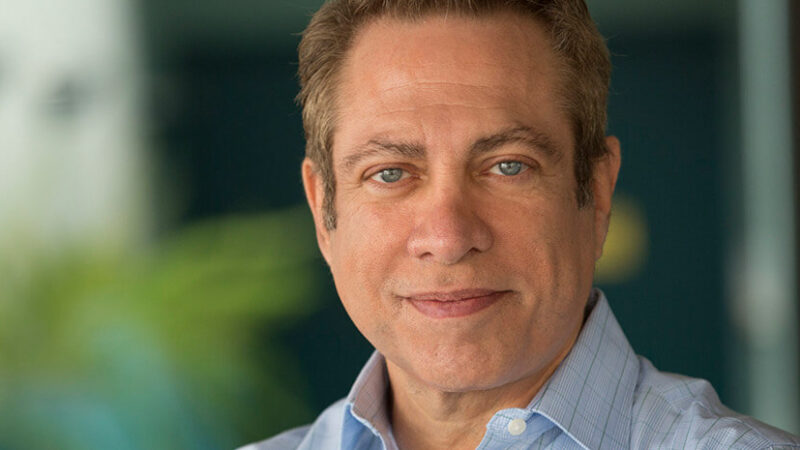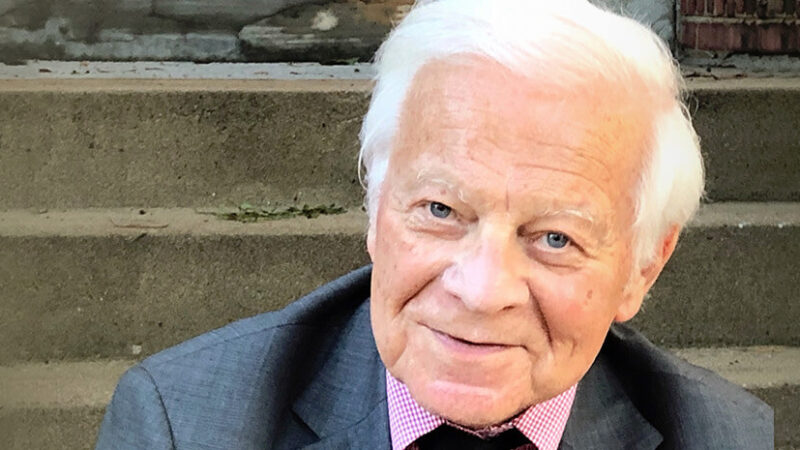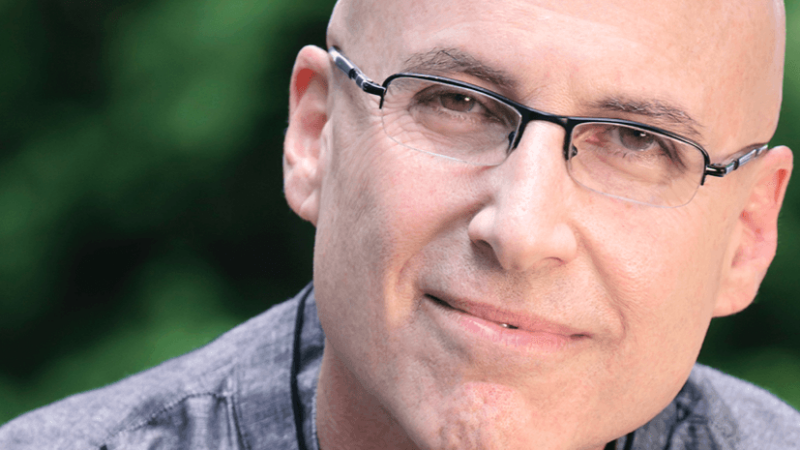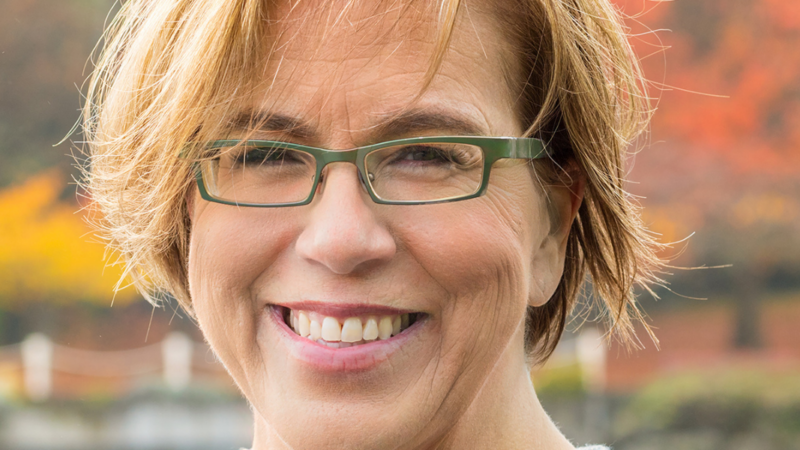-
E117: The Real Work: Letting Go from Within
Michael Singer — October 2, 2025
True spirituality isn’t about mystical experiences or lofty ideals—it’s about honestly facing...
-
Once More: Reflections on Reincarnation and the Gap Between Lives
Tami Simon — September 26, 2025
In this special reflection episode of Insights at the Edge host Tami Simon looks back on her...
-
Honey Tasting Meditation: Build Your Relationship with Sweetness
There is a saying that goes “hurt people hurt people.” I believe this to be true. We have been...
Written by:
Amy Burtaine, Michelle Cassandra Johnson
-
Many Voices, One Journey
The Sounds True Blog
Insights, reflections, and practices from Sounds True teachers, authors, staff, and more. Have a look—to find some inspiration and wisdom for uplifting your day.
Standing Together, and Stepping Up
Written By:
Tami Simon -
The Michael Singer Podcast
Your Highest Intention: Self-Realization
Michael Singer discusses intention—"perhaps the deepest thing we can talk about"—and the path to self-realization.
This Week:
E116: Doing the Best You Can: The Path to Liberation -
Many Voices, One Journey
The Sounds True Blog
Insights, reflections, and practices from Sounds True teachers, authors, staff, and more. Have a look—to find some inspiration and wisdom for uplifting your day.
Take Your Inner Child on Playdates
Written By:
Megan Sherer
600 Podcasts and Counting...
Subscribe to Insights at the Edge to hear all of Tami's interviews (transcripts available, too!), featuring Eckhart Tolle, Caroline Myss, Tara Brach, Jack Kornfield, Adyashanti, and many more.
Most Recent
Finding Meaning in Our Grief
David Kessler is widely considered the world’s foremost expert on grief and loss. He is the author of six books, including the new bestseller Finding Meaning: The Sixth Stage of Grief, and the founder of grief.com, which has more than five million visits annually from people in almost 170 countries. David has taught physicians, nurses, counselors, police, and first responders about the end of life, trauma, and grief. He facilitates talks, workshops, and retreats for those experiencing grief, and his experience with thousands of people on the edge of life and death has taught him secrets to living a happy and fulfilled life, even after tragedy.
In this podcast, Sounds True founder Tami Simon speaks with David Kessler about his new book, including how our relationships transcend death and how we can all continue to love and cherish those we’ve lost. They also discuss David’s friendship and work with Elisabeth Kübler-Ross; misconceptions about the five stages of grief; finding meaning as the sixth stage of grief; why all grief does not have trauma, but all trauma has grief; making the decision to participate in life after loss; the importance of telling our stories, and why our grief must be witnessed in order to be healed; creating a grief-literate society; why “what we avoid pursues us, what we face transforms us”; how our lost loved ones can move forward with us in life; being with and there for someone in grief; our “continuing bonds” with those we’ve lost, and how death can never end our relationships; and more.
What Is Wanting to Find Expression Through You?
Dr. James Hollis is a Jungian analyst, a former director of the Jung Society of Washington, DC, and a professor of Jungian Studies for Saybrook University of San Francisco/Houston. He is the author of The Middle Passage, Living an Examined Life, Through the Dark Wood, and Living Between Worlds, among many others. With Sounds True, he’s released the expansive audio program A Life of Meaning: Exploring Our Deepest Questions and Motivations. In this episode of Insights at the Edge, Tami Simon speaks with James about the journey for personal fulfillment—how it starts, what it demands, and how it changes your life. James explains what it really means to take responsibility for your life’s path, as well as how you can rediscover and reclaim your innate authority. Tami and James discuss how childhood experiences shape our present behavior and what it takes to live fearlessly. Finally, they talk about overcoming lethargy and the joy of becoming comfortable with mysteries.
Not Being a Prisoner to Your Nervous System
Jeffrey Rutstein, PsyD, is a clinical psychotherapist, trauma expert, and a longtime student and teacher of meditation. In collaboration with Sounds True, Dr. Rutstein is hosting the upcoming Healing Trauma Program: A Nine-Month Training to Regulate Your Nervous System, Embody Safety, and Become a Healing Presence. In this episode of Insights at the Edge, Tami Simon speaks with Dr. Rutstein about the physical aspects of trauma and how to understand their influences on daily life. He explains his model of “the owner’s manual of your nervous system” and how actively reading your body state is the first step to unraveling traumatic aftereffects. Tami and Dr. Rutstein also discuss self-regulation during stressful situations, practices for anchoring in the body, and how our understanding of trauma has evolved over time. Finally, they talk about consciously interrupting trauma-born behaviors, as well as the ongoing work of teaching emotional literacy and resilience.
Customer Favorites
Our Evolutionary Leap
Lynne Twist is a global activist, author, and teacher who has devoted her life to sustainability and economic integrity. An original staff member of The Hunger Project, she is author of The Soul of Money and president and founder of the Soul of Money Institute. She is also the author of the Sounds True audio learning program Unleashing the Soul of Money.
In this podcast, Lynne joins Sounds True’s founder, Tami Simon, to discuss the challenges and opportunities now facing humanity—and the invitation to each one of us to make a difference as we embrace this critical time in our evolution at the beginning of a new millennium.
Lynne and Tami also talk about our unique place in time and the emerging new approach to business; the Pachamama Alliance and the prophecy of “The Eagle and the Condor”; tapping the wisdom of “grandmother energy”; Buckminster Fuller and creating a world that works for everyone; the invitation to each one of us to “take an evolutionary leap and dream big now”; environmental regeneration and redefining humanity; reclaiming our home in the ecological world, and creating economies that respect nature; giving up the scramble and becoming totally present in the moments of our life; purpose, choices, and trusting our feelings; bravery, humility, and surrender on the path; and more
LaRayia Gaston: Love Without Reason
LaRayia Gaston is a former model, actress, and the founder of the nonprofit Lunch On Me, an organization dedicated to offering organic, healthy food and holistic healing to those experiencing homelessness. She’s also a regular public speaker, podcast guest, and activist. She filmed a documentary, 43 Days on Skid Row, which shows her time living with LA’s Skid Row residents and offers up a true picture of what life is really like in one of America’s largest homeless communities. In this podcast, Sounds True founder Tami Simon speaks with LaRayia about her new book, Love Without Reason. They discuss the superpower called “love”; why connection and empowerment are central to ending hunger; gratitude as an action, not just an attitude; transforming our “withholding” and scarcity mindsets; seeing humanity “on every corner, in every person”; and more.
Meet the author of . . . P.S. I Love You More Than Tun...
The Author
Sarah Chauncey is the coauthor of P.S. I Love You More Than Tuna along with illustrator, Francis Tremblay, coming October, 2020. She has written and edited for nearly every medium over the past three decades, from print to television to digital. Her writing has been featured on EckhartTolle.com and Modern Loss, as well as in Lion’s Roar and Canadian Living. She lives on Vancouver Island in British Columbia, where she divides her time between writing, editing nonfiction, and walking in nature. Learn more at sarahchauncey.com.
The Book

Our cats occupy a unique space in our hearts. When they’re gone, the loss can be devastating, the grief profound.
P.S. I Love You More Than Tuna gives us an opportunity to give friends, loved ones, or ourselves tangible comfort during the grieving period, when so many of us feel isolated and misunderstood after a beloved pet dies.
Send us a photo of your sacred space.

First Nation, Saysutshun Newcastle Island is an ancient forest and marine provincial park. Saysutshun, I’m told, means “training or preparation ground,” and indeed, for millennia before colonization, the Snuneymuxw brought healers to this small island to train “mentally, physically, and spiritually.” I knew none of this history when I first began walking long stretches of the uninhabited island’s 13.6 miles of trails. I only knew that the island seemed to lift away anything that wasn’t essential, easing my mind and making way for creative ideas to flow. I’d walk a bit, then sit and meditate, write for a while, then walk some more. This bench, under a circle of seven trees, became my favorite writing and meditation spot. The moss-covered trees became my friends, teaching me to stay rooted when things around me change. As I wrote in a 2016 essay about the island, “I have become a literal tree-hugger, and even—when nobody is looking—a tree-kisser.”
What was your favorite book as a child?
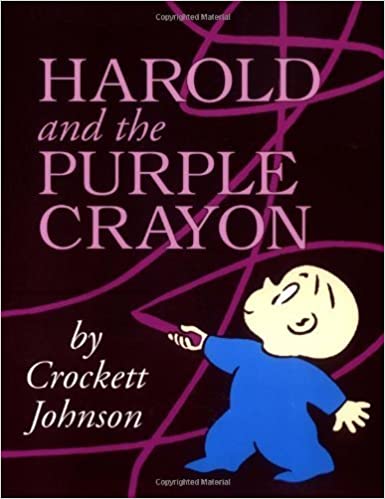
I was a total bookworm as a child. Instead of playing games at recess, I preferred to curl up under my desk and read. Of all the books I read—from every Encyclopedia Brown to Freaky Friday to The Short Stories of Ernest Hemingway (I was a precocious kid), the book with the most enduring impact was also the simplest: Harold and the Purple Crayon. I was enchanted by Harold’s adventures, amazed by his ability to draw his way out of every obstacle and ultimately find his way home. Long before I began seeing this as a metaphor for creativity (and life!), this story appealed to me. Fifty years later, I continue to find new layers of meaning in this little book. It’s a simple yet profound testament to the power of imagination and creativity.
What is one unexpected thing or habit that inspires your writing practice?
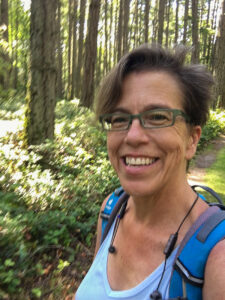

Walking in nature is my creative “secret sauce” and the central practice to my writing. Several years ago, I realized that although my role in this world is as a writer, my job is to bring myself back into presence, over and over, to get into a place where words can flow through me. I walk to get out of my mind and into my body. I come into fierce presence by noticing the rain on my face, salal berries ripening into deep blue, or the texture of earth beneath my feet. When my body is occupied by walking, ideas bubble up from my subconscious. Whether I’m looking for ways to trim an over-long essay or searching for words to evoke a hard-to-articulate experience, as soon as my legs find their rhythm, ideas begin to flow.
Learn More

Sounds True | Amazon | Barnes&Noble | Bookshop | Indiebound

